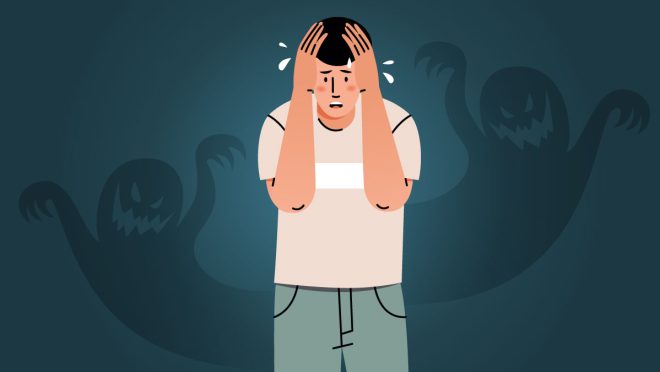Beyond the protest: A generational trauma
Beyond the protest: A generational trauma

The quota reform movement has stretched over a month, surrounded by unimaginable events. The quota crisis has cast a long shadow that has deeply affected the mental health of an entire generation. Despite this, we rise each day, holding on to hope.
Since the onset, including a 120-hour internet blackout in Bangladesh, we’ve been living in constant horror and anxiety. Every night, anxiety looms large. Everyone goes to bed with unsettling horror, wondering what could come next that’s even worse. The ongoing unrest brings a nightly fear of worsening conditions, creating an atmosphere of uncertainty and significantly impacting our mental health.
For many, constant anxiety often results in sleepless nights filled with worry and overthinking, which exacerbates stress and creates a vicious cycle. This not only affects academic and work performance but also drains the energy and focus needed to manage daily tasks effectively.
Sarah Ahmed, a third-year Psychology major, said, “Every night feels like a nightmare. The sounds of helicopters, sound grenades, the uncertainty — all too much. I used to look forward to my classes and going out, but now I can barely focus. I feel like I’m constantly on edge.”
The clashes resulting in tragic losses of students have caused more harm beyond physical injuries, leaving a significant impact on the mental health of all students involved, whether they are direct protestors or mere witnesses.
The internet blackout amid protests severely disrupted part-time online businesses, resulting in job losses for many students. This led to financial instability and heightened anxiety, with one student stating, “Losing my online job was devastating, not just financially but also in terms of losing my sense of security and independence.”
The psychological trauma resulting from violent protests can cause severe mental health conditions such as post-traumatic stress disorder (PTSD), anxiety, and depression. Research shows that individuals who are exposed to violence are more likely to experience these conditions. A study conducted by the American Psychological Association (APA) found that about 20% of individuals who witness or are involved in violent events may develop PTSD.
Arham, a freshman at a public university, expressed, “Every time I see posts on social media, I’m gripped by the fear that some protesters might not make it back home. It’s heartbreaking. I desperately wish for an end to the violence.”
Students who survive or witness violent incidents often suffer long-lasting psychological effects. This trauma can appear in different forms, such as recurring nightmares, severe anxiety, and uncontrollable thoughts about the traumatic events. The National Institute of Mental Health (NIMH) reports that about 19% of adults in the U.S. experience anxiety disorders, many of which can be linked to traumatic experiences during their early years, including their time in educational institutions.
Furthermore, the World Health Organization (WHO) emphasizes that being exposed to violence during adolescence can increase the chances of developing depression in life by 60%. This impact is particularly severe for students, as it can disrupt their ability to focus on studies, campus activities, and maintaining relationships.
When discussing the impact on mental health, Sara, a recently enrolled college student, shakily asked, “Is this the Bangladesh we envisioned? We are suffering both physically and psychologically.”
After 15 years of dictatorship, after all the bloodshed, the Gen-Z generation has sparked a revolution in Bangladesh. Despite facing violence and risking their lives, they persevered and brought about the significant change we all hoped to see. We are grateful for their efforts to save our nation and uphold the truth. While the dictatorship is over, there is still much work ahead to improve Bangladesh for us and for future generations.


